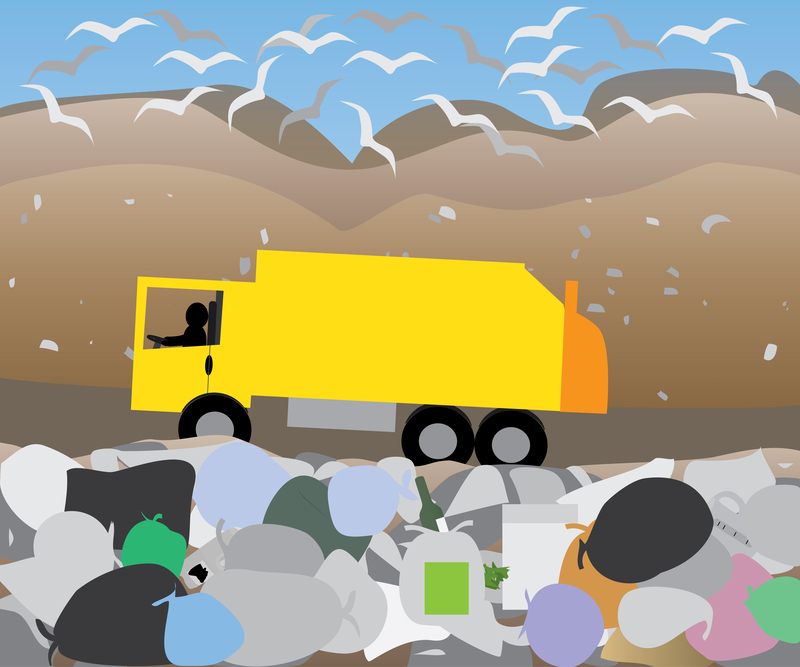Master the Art of Office Recycling Enhancement: A Comprehensive Guide
Is your workplace striving to become more eco-friendly? Are you searching for actionable and effective office recycling solutions to reduce waste and promote sustainability?
You're not alone. As businesses increasingly recognize their environmental responsibility, recycling enhancement in office spaces has become a priority worldwide. Whether you lead a small startup or manage sustainability efforts for a global enterprise, mastering office recycling requires a strategic approach, practical steps, and long-term dedication.

Why Focus on Office Recycling Enhancement?
Offices are a major source of waste, from paper and packaging to electronics and food scraps. According to the EPA, offices generate over 2 pounds of waste per worker each day--with much of it being recyclable. Enhancing your office recycling program isn't just about "going green"; it's about cost savings, resource conservation, employee engagement, and boosting your company's reputation.
- Environmental Impact: Diverting waste from landfills conserves natural resources and lowers your carbon footprint.
- Cost Savings: Efficient recycling reduces disposal costs and can sometimes generate revenue through material resale.
- Workplace Culture: Employees want to work for eco-conscious companies, leading to higher engagement and retention.
- Compliance: Many jurisdictions mandate commercial recycling, making compliance non-negotiable.
With the right approach, you can turn recycling into a cornerstone of your office sustainability strategy.
Common Obstacles to Effective Office Recycling
Before launching a robust recycling enhancement program in your office, understanding the barriers is essential. Here are typical challenges offices encounter:
- Confusing Recycling Rules: Employees may be unsure about what can and cannot be recycled.
- Insufficient Infrastructure: A lack of clearly-labeled recycling bins and pick-up schedules can create confusion.
- Low Engagement: If employees are not motivated or educated, contamination rates rise and recycling decreases.
- Electronic Waste: Disposing of e-waste is more complicated than regular office materials.
- Outdated Processes: Old habits die hard; offices often stick to ineffective waste management routines.
How to Master the Art of Office Recycling Enhancement
Ready to transform your office recycling program? Below we outline a step-by-step strategy, peppered with practical tips and office waste management best practices tailored to workplaces of all sizes.
1. Analyze Your Current Waste Stream
Begin by conducting a waste audit. Gather a team and analyze what types of waste your office produces--paper, plastics, metals, organics, electronics, and so on. Record the volume and frequency of each category.
- Identify Top Contaminants: Which non-recyclable items are ending up in recycle bins?
- Pinpoint High-Volume Wastes: Which items could be replaced with reusable alternatives?
- Review Current Bin Placement: Are bins placed in accessible, high-traffic locations?
*Tip: Take pictures and physically measure waste--data helps build a compelling case for change.*
2. Set Goals and Benchmarks for Your Office Recycling Program
Clear, measurable goals provide motivation and a sense of accomplishment. Examples include:
- Reduce landfill waste by 30% in 12 months
- Increase paper recycling rate to 80% by year-end
- Host a quarterly electronics recycling drive
Use your baseline waste audit data to set realistic targets and track your progress.
3. Create an Efficient Office Recycling Infrastructure
Infrastructure is everything. The easier you make recycling, the more successful your program will be.
- Labels Matter: Use color-coded, clearly labeled bins for recyclables, landfill, organics, and specialty items (like batteries or electronics).
- Convenience Is Key: Place recycling bins next to every printing station, kitchenette, and meeting room.
- Centralized Collection: For large offices, designate centralized sorting stations to minimize contamination and optimize waste logistics.
- Partner Selection: Work with reliable waste haulers and recyclers who offer regular pickups and accurate reporting.
*Don't forget signage! Engaging, easy-to-understand posters with images help prevent cross-contamination.*
4. Educate and Engage Your Colleagues
Office recycling improvements hinge on collaboration. Here's how to boost staff awareness and engagement:
- Training Sessions: Offer periodic workshops or lunch-and-learns on recycling best practices and goals.
- Regular Updates: Send monthly progress emails, post infographics, and shout out "recycling champions."
- Gamify the Process: Launch inter-department recycling challenges, prizes, or recognition schemes.
- Appoint Recycling Ambassadors: Assign volunteers to monitor bins, answer questions, and motivate peers.
5. Address Specialized Office Waste
Offices generate more than just paper and plastic. Managing specialized waste streams is crucial for full recycling enhancement.
- Electronics (E-waste): Set up collection bins for batteries, cables, printers, and outdated computers. Collaborate with certified e-waste recyclers.
- Toner & Ink Cartridges: Many manufacturers offer free return and recycling programs.
- Kitchen Waste: Consider adding compost bins for coffee grounds, tea bags, and food scraps in common areas.
- Confidential Paper: Use shredding services that also recycle to protect privacy and the environment.
6. Foster a Culture of Sustainability
The most successful office recycling practices are embedded into company culture. Encourage ongoing conversation and mindfulness with:
- Green Committees: Form employee-led teams to brainstorm improvements and champion new ideas.
- Policy Integration: Add recycling guidelines to the employee handbook and onboarding materials.
- Celebrate Achievements: Publicize recycling milestones, certifications, or awards across company channels.
*Employee buy-in is critical for lasting improvement!*
7. Monitor, Measure & Continuously Improve
What gets measured gets managed. Schedule regular waste audits and solicit feedback from both employees and janitorial teams. Use technology--such as smart bins or digital dashboards--to track performance in real-time.
- Analyze contamination rates and adapt educational materials accordingly.
- Review waste hauler reports for accuracy and actionable insights.
- Don't be afraid to iterate--office recycling is an ongoing process!
Advanced Office Recycling Enhancement Tactics
Once a strong foundation is in place, consider the following sophisticated office recycling enhancement strategies to take your program to the next level:
Integrate Digital Tools for Waste Management
- IoT Bins: Smart bins monitor waste levels, optimize collection routes, and reduce unnecessary pickups.
- Waste Analytics Platforms: Visualize trends and receive actionable recommendations for improvement.
Reduce Waste at the Source
- Print Smart: Institute default double-sided printing and digital documentation workflows.
- Eco-friendly Procurement: Source office supplies made from recycled or minimal packaging materials.
Green Your Supply Chain
- Vendor Collaboration: Work with suppliers committed to sustainable packaging and take-back schemes.
- Hosting "Zero Waste" Events: Implement compostable dishware and strict recycling guidelines for company meetings and parties.
Common Myths About Office Recycling
-
"Everything can go in one bin."
Reality: Single-stream recycling is common, but sorting is often required downstream. Proper separation at the source increases material value. -
"If it has a recycling symbol, it's recyclable here."
Reality: Recycling policies vary widely by location. Always check with your local hauler. -
"One person won't make a difference."
Reality: Every action counts. Office programs thrive when individuals take responsibility.
The Benefits of Office Recycling Enhancement
Boosting your office recycling program pays off in numerous ways:
- Environmental Payoff: Reduced landfill contributions and lower greenhouse gas emissions.
- Financial Savings: Decreased waste hauling costs and, in some cases, revenue from high-value recyclables.
- Employee Satisfaction: Fosters pride and engagement, making your company more attractive to talent.
- Brand Reputation: Demonstrates social responsibility to clients, partners, and the public.
- Regulatory Compliance: Keeps your business on the right side of increasingly strict environmental mandates.
Frequently Asked Questions on Office Recycling Enhancement
Q: What are the most commonly missed recycling opportunities in offices?
A: Besides paper and bottles, offices often overlook toner cartridges, batteries, lightbulbs, e-waste, and compostable kitchen waste. Setting up dedicated bins and clear signage makes a huge impact.
Q: How do I motivate my colleagues to participate?
A: Combine education with incentives. Run awareness campaigns, reward green behavior, and empower department champions. Make recycling fun and accessible for everyone!
Q: What should I do with confidential paper waste?
A: Use a secure shredding service that guarantees both information security and environmentally responsible paper recycling.
Q: Can small offices make a difference?
A: Absolutely! Small offices often have more flexibility and can pilot new approaches quickly. Every bit counts--especially if you influence suppliers and clients, too.

Conclusion: Start Your Journey to Office Recycling Excellence
Mastering the art of office recycling enhancement isn't a one-off task--it's a journey of education, optimization, and innovation. By analyzing your current practices, building strong infrastructure, engaging your team, and continually tracking progress, your workplace can become a beacon of sustainability.
Remember: The most effective office recycling programs are a blend of the right tools, clear communication, and lasting commitment to the planet.
Ready to make your office greener, cleaner, and more future-focused? Begin transforming your workplace recycling today!
Action Steps for Office Recycling Enhancement
- Schedule a waste audit this month
- Upgrade or relabel your recycling infrastructure
- Host a training session or recycling challenge
- Review your supplier's packaging and take-back programs
- Set ambitious, public office recycling targets
By taking these steps, your office can lead the way in sustainability, making a measurable difference for your colleagues, business, and the world around you.